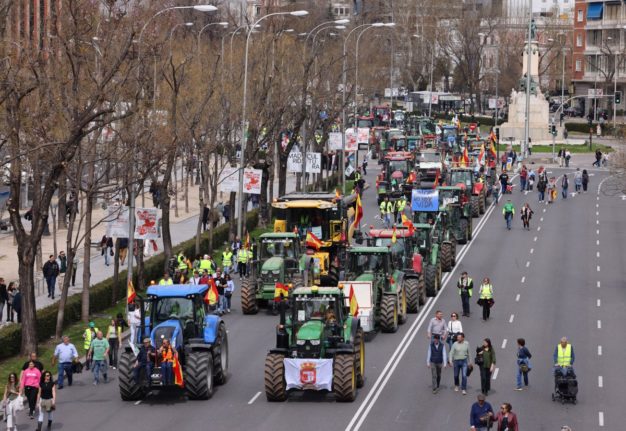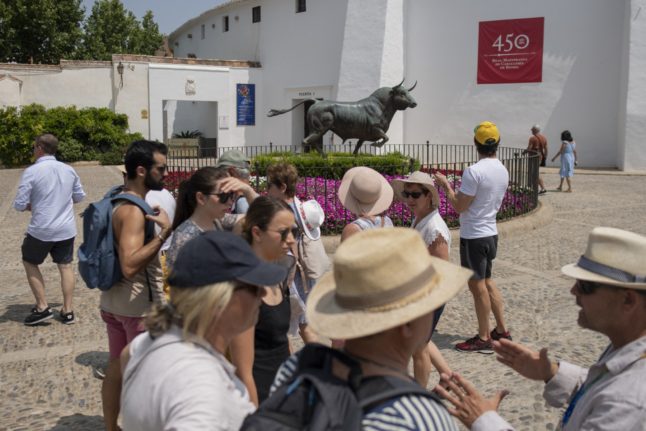The farmers marched from the Ministry of Ecological Transition to the Ministry of Agriculture after the European Union proposed legislative changes to drastically ease the environmental rules of the Common Agricultural Policy (CAP) Friday.
Rallied by their trade union, farmers carried banners proclaiming “We are not delinquents” to the sound of horns and whistles. One decorated his tractor with a mock guillotine.
READ ALSO: EXPLAINED: Why are farmers in Spain protesting?
“It is as if they want to cut off our necks,” said Marcos Baldominos explaining his guillotine.
“We are being suffocated by European rules,” the farmer from Pozo de Guadalajara, 50 kilometres (30 miles) east of Madrid, added.
Friday’s concessions in Brussels aimed to loosen compliance with some environment rules, EU chief Ursula von der Leyen said. While the move was welcomed by Spain’s left-wing government, some environmental NGOs criticised the measures.
“We are faced with a pile of bureaucratic rules that make us feel more like we are at an office than on a farm,” the trade union behind Sunday’s march, Union de Uniones, said with reference to requirements “that many small and medium-sized farms” cannot “cope with”.
Sunday marked the fourth demonstration in Madrid since the start of the wider European farm protest movement in mid-January.



 Please whitelist us to continue reading.
Please whitelist us to continue reading.
Member comments